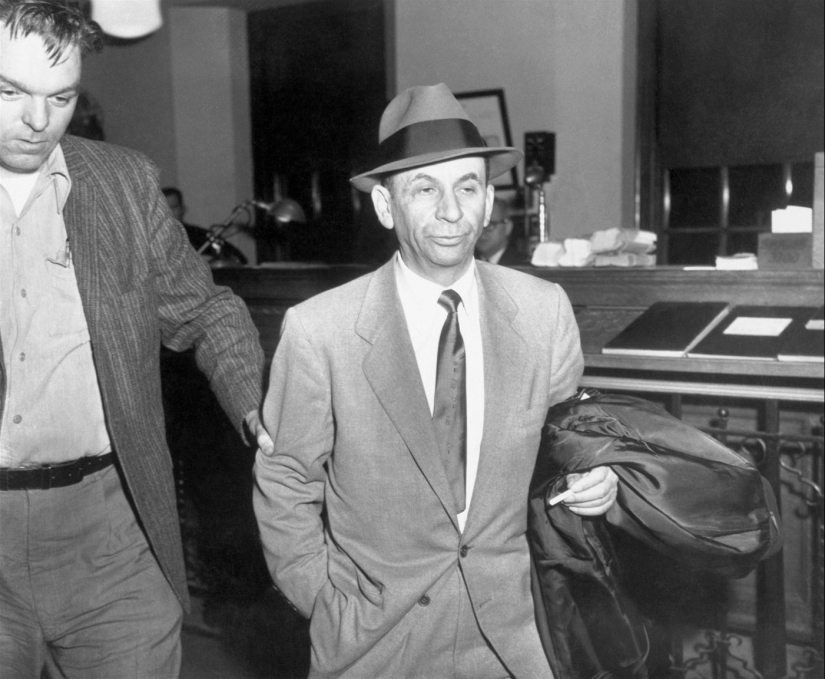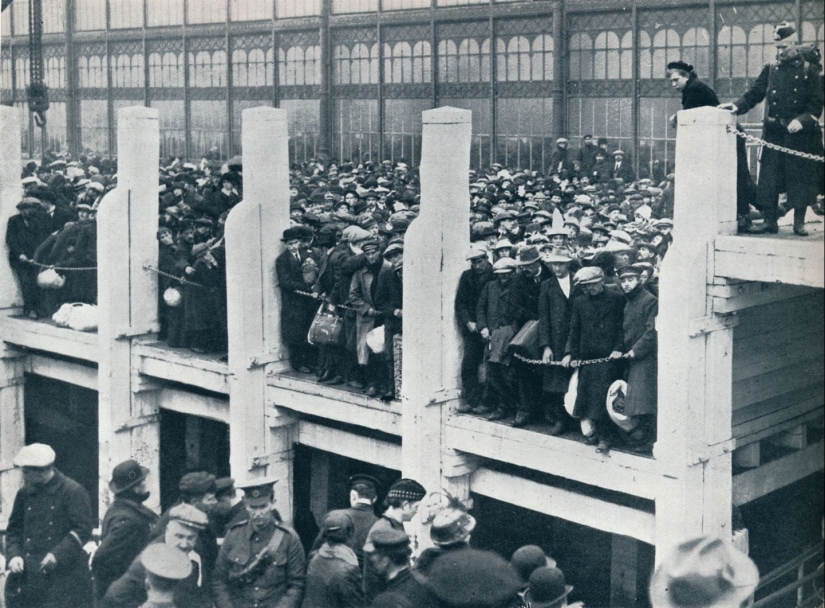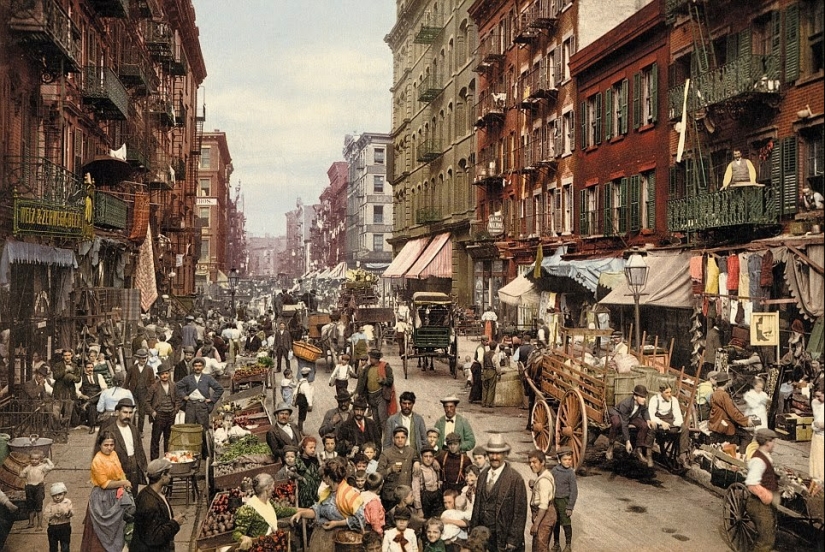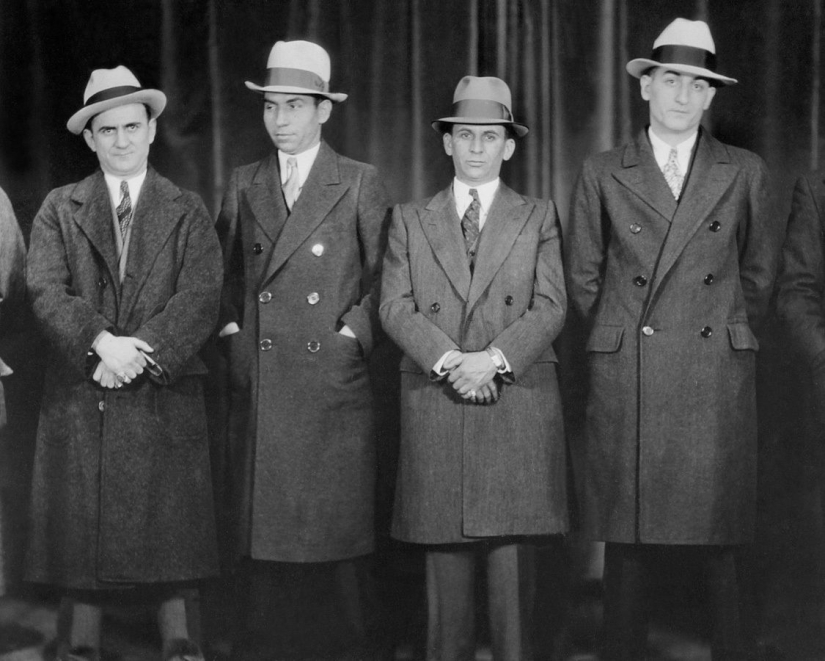How the Belarusian Jew Meyer Lansky became the criminal king of the United States
Categories: Celebrities | History | Nations | North America | Society
By Pictolic https://pictolic.com/article/how-the-belarusian-jew-meyer-lansky-became-the-criminal-king-of-the-united-states.htmlMeyer Lansky is one of the most successful gangsters in the history of the United States. He was born into a poor Jewish family, moved to America and built a gambling criminal empire. Unlike his colleagues in a dangerous business, he did not go to prison, did not die in a showdown, but lived to a very old age. The prototype of Meyer Lansky is shown in the films "Once upon a Time in America", "The Godfather" and in the TV series "Underground Empire".

Meyer Sukhomlyansky was born in the Belarusian town of Grodno. In 1911, Meyer turned 9 years old, and he and his mother sailed on the ship "Kursk" to distant America, where his father had already lived for 2 years. Upon arrival in the United States, the family settled in Manhattan. Due to the difficulty of pronouncing the surname Sukhomlyansky, American customs officers shortened it to a more sonorous Lansky.
 Arrival of migrants in the United States
Arrival of migrants in the United States
Because of the high crime rate in those days, Manhattan was called "hell's kitchen". On the streets of the slums, Italian, Irish and Jewish groups of emigrants fought for power. Meyer also "cooked" in this kitchen and dating determined a lot in the guy's life. One day, the gang in which Sukhomlyansky was a member, grappled with teenagers from a neighboring street.
 Photo of Hell's Kitchen
Photo of Hell's Kitchen
The fight was broken up by the police. From the cops, Meyer hid in the basement with the" enemy " Bugsy Siegel. In the future, he will be called the most hot-tempered and dangerous gangster in New York. The opponents came out of hiding as friends.
Bugsy Siegel. Killed for embezzling mafia money
At school, Italian high school students beat money out of Jews. One day, Meyer was approached by a 5-year-old Salvatore Luciano, nicknamed "Lucky", who in a few years would become a legend of the criminal world of the United States. Sukhomlyansky resisted, but the Italians took away the money. Meyer endured the insult, but did not forgive.
Luciano Salvatore, nicknamed Lucky
A short and seemingly frail Jewish boy ambushed the enemy and ran into him with a boulder in his hand. Luciano appreciated the boy's bravery, and after this fight, their friendship lasted a lifetime.
Together with his childhood friends, Lansky organized a group that was called "Kosher Nostra"in police reports. They became the prototypes of the heroes of the film "Once upon a Time in America". The friends were engaged in racketeering and petty theft, but the gold mine was the theft of cars, which by that time filled the streets of New York. Lansky persuaded his friends Lucky and Bugsy to save part of the profits for bribing the police and other general expenses.
 Photos of offenders detained by the police. In the center-Luciano Salvatore and Meyer Laski
Photos of offenders detained by the police. In the center-Luciano Salvatore and Meyer Laski
In January 1920, the US government banned the sale of alcohol. The following week, 200,000 underground bars opened across the country. Lansky made a lot of money smuggling whiskey across Lake Ontario. His business partner was Samuel Bronfman, a Canadian Jew and director of the wine production concern.

Third from the left is Meyer Lansky. Next to him is Al Capone
After the economic crisis, the positions of Meyer Lansky, Salvatore Luciano and Bugsy Siegel strengthened. They became the crime kings of New York, with whom all the gangsters of the United States were considered. They even had the famous Al Capone under their command. For his ability to count money, Lansky received the nickname "Accountant". The police believed that it was he who was following the financial affairs of the US mafia.
Since childhood, Lansky was fond of gambling. One day he lost money at cards that his mother gave him for groceries. Then the woman did not yell at her son, but simply burst into tears. The father of the family drank and was an avid gambler, and Meyer promised himself that he would never play for money again. When Lansky watched the game from the side, he realized that only the one who holds the pot always wins. And the guy began to dream about his casino.

In the early 30s, Meyer Lansky realized that the era of bootlegging was ending, and decided to invest in gambling. He opened gambling houses in Chicago, Cleveland and Detroit. In 1933, Lansky and Luciano came to visit the President of Cuba, Ruben Batista, and for a bribe of six million dollars, they received from him a patent for opening and managing all gambling houses on the island.

Together with Siegel, they create a company for the construction of casinos and hotels in Las Vegas. In New York, Lansky opened a network of underground bookmakers and closed casinos, which were visited by politicians, businessmen and police officers who wanted not to advertise their addiction to the game. Miami also fell into the sphere of influence, where the group opened underground gambling houses.
When Hitler came to power in Germany in 1933, the Nazis were gaining strength in the United States. The already well-known criminal leader Meyer Lansky received a call from New York judge Nathan Perelman and said that the authorities were giving unofficial permission to disperse the rallies of American supporters of Adolf. Lansky didn't have to ask twice.
 Jewish gangsters disperse a meeting of American Nazis
Jewish gangsters disperse a meeting of American Nazis
The meetings of the Nazis were raided by young Jewish gangsters from the Lansky-Siegel brigades, and Hitler's ideas did not spread in the United States. When most countries imposed a trade embargo on Israel in the mid-40s, Meyer organized an underground supply of weapons to the Israeli army. After Las Vegas opened in May 1948, Lansky transferred a tenth of the profits to Israel.
In 1959, the revolution won in Cuba. Lansky personally flew to the island, where he met with Fidel Castro and Che Guevara. The mafia made a condition: either the casinos and hotels continue to work, or the communists pay compensation. Commandant Che Guevara advised the Jewish gangster to leave Cuba as soon as possible, while he is still alive.

On Freedom Island, Lansky lost all his real estate, $ 17 million in cash and earnings prospects. The next blow to the underground empire was the closure of the casino in Miami. Lansky has only Las Vegas left. Since the 50s, Meyer has been under the round-the-clock supervision of the FBI, which tried to prove his crimes in the financial sphere.

Journalists called Lansky "the boss of all bosses". The special services listened to his phone conversations, conducted constant searches and monitored all contacts. In 1970, he got tired and moved to Israel at the age of 69. The United States demanded that the Israeli authorities extradite the mafiosi and threatened to stop the supply of weapons.

Meyer Lansky became the only Jew in the history of Israel who was denied citizenship under the law that allows to cancel repatriation if a person was engaged in criminal activity in the country of exodus. The fugitive returned to the United States, but the court did not prove his guilt. At the end of his life, the criminal king could not travel outside the United States and died in Miami from cancer in 1983.
Keywords: Jews | Italians | Casinos | Cuba | Las vegas | Mafia | Usa
Post News ArticleRecent articles

It's high time to admit that this whole hipster idea has gone too far. The concept has become so popular that even restaurants have ...

There is a perception that people only use 10% of their brain potential. But the heroes of our review, apparently, found a way to ...
Related articles

Franz Stangl was arrested on a grand scale. Several police cars and armored vehicles with machine guns, raising dust, surrounded a ...

It is known that Jews have been living on the territory of Russia, Ukraine and Belarus since time immemorial. Surprisingly, the ...

The life of ordinary people is the main part of the country's culture. Italian Marco Sconocchia (Marco Sconocchia) has been living ...

New Year's is a time to surprise and delight loved ones not only with gifts but also with a unique presentation of the holiday ...